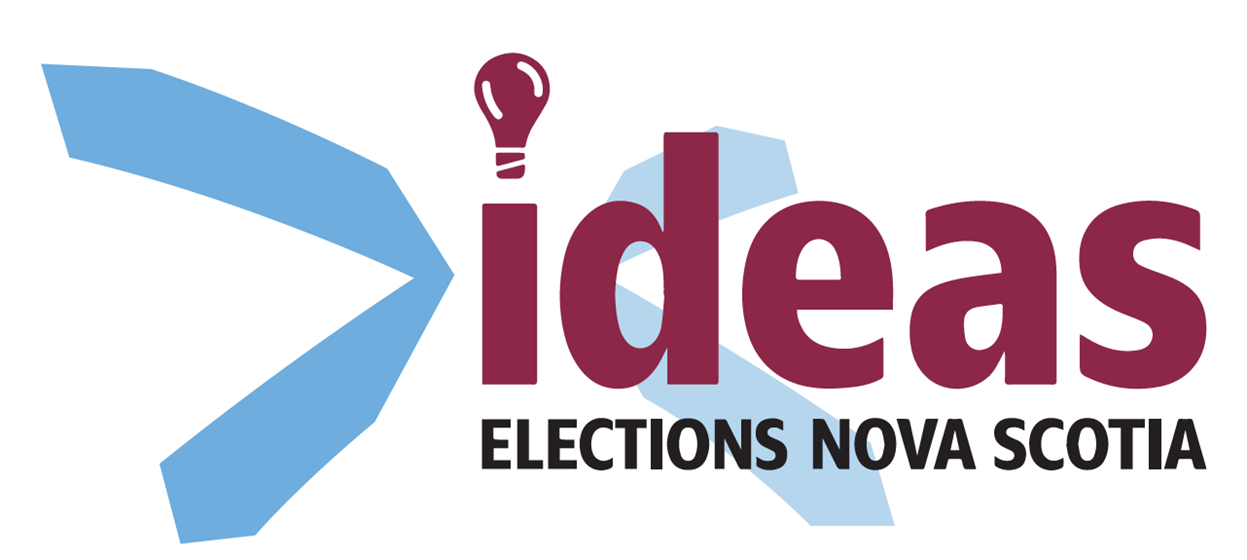Elections Nova Scotia
Accessibility and Accommodations

Underserved Voter Communities
Elections Nova Scotia (ENS) is committed to representing and supporting traditionally underserved voter communities. Our mandate is to deliver fair and inclusive elections – therefore we strive to listen to all Nova Scotians and invite all to participate in the electoral process.
In collaboration with our Inclusion, Diversity, Equity and Accessibility (IDEAS) partners, ENS has developed an outreach work plan to improve employment diversity of election workers, expand voter awareness and accessibility, and enhance voter experience.
The ENS Liaison Officer team is working with IDEAS partners to better understand and meet the needs of underserved voter communities.
If you have a voting issue related to inclusion, diversity, equity or accessibility, please connect the ENS liaison officer team by emailing IDEAS@electionsnovascotia.ca
Need help marking your ballot?
If you require assistance to mark your ballot, you may bring someone who is at least 16 years old to help you. You can take your child, grandchild, brother, sister, parent, grandparent, spouse, caregiver, or friend behind the privacy screen with you to help mark your ballot. Family members and caregivers can assist multiple people with marking their ballot, while anyone else can only do this once.
Either way, you both will be asked to make a declaration before you cast your vote.
You can also ask the deputy returning officer to help you vote if you prefer. In this case, if there is an agent representing a candidate present, he or she is entitled to accompany the two of you to observe the assistance given.
What if your voting location is not accessible?
It is mandatory that all locations have level access. Should it ever happen that your voting location is not accessible to persons with physical disabilities, it will be noted on the Voter Information Card you, as a registered voter, will receive in the mail. In this case, contact your returning office and the returning officer will provide you with several options including having the ballot delivered to your home.
Voting with a visual impairment
Ask the election officer for the special template that is available at all voting stations just for persons who are visually impaired. This will help you mark your own ballot.
Voting when you are deaf or hard of hearing
You can bring a translator with you if you communicate using sign language.
Voting when you are living in a shelter
If you are temporarily staying in shelter and need the protection of anonymity, contact Elections Nova Scotia or your local returning office for assistance. You will be able to vote with the assistance of a write-in ballot coordinator team and your name and location will be held in confidence.
Voting when you are experiencing homelessness
You do not have to be a homeowner or renter to be able to vote in Nova Scotia. As long as you are a Canadian citizen who will be 18 years of age or older on election day, and you have lived in Nova Scotia for six months before the date the election is called, you have the right to vote. The voting station you vote at is determined by where you live.
If you are experiencing homelessness and have no permanent residence, the Elections Act provides that the place where you sleep at registration time – a shelter, hostel or other place that provides food, lodging or social services – may be considered your residence. When an election is called, returning officers will contact the administrators of shelters to inform residents that, if they wish to vote, they may use the shelter as their “place of residence” if they are otherwise qualified as electors. A poster at the shelter will have the location of the appropriate voting locations. When registering to vote, you will be required to complete an application to be added to the list of electors and will be asked for identification with your name and signature.
Forum 29
Almost 60 delegates participated in panel discussions and interactive sessions centred on the topic of how to inspire Nova Scotians living with disabilities to get involved with the political system and democracy. Download Report
